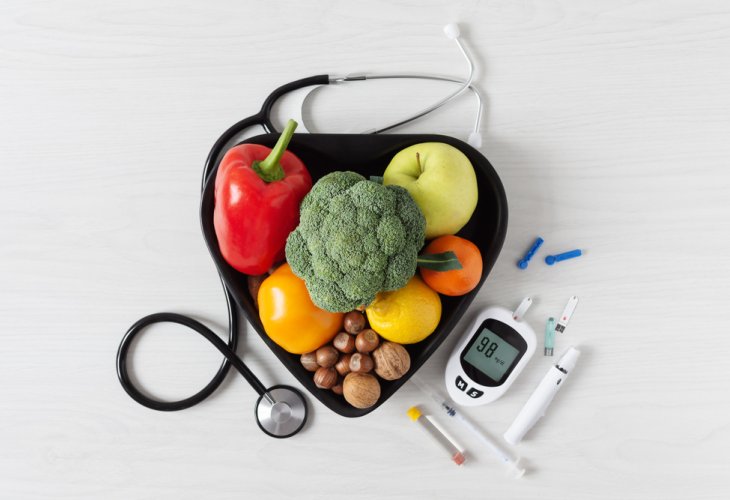Debunking Common Myths About Diabetes
What's behind diabetes, how does diet factor in, what about insulin pumps, and can you catch diabetes? Dr. Julio Weinstein sets the record straight.
 (Photo: shutterstock)
(Photo: shutterstock)Diabetes is a widespread chronic illness that affects millions globally. Despite its prevalence, there are still many myths surrounding it that can mislead and confuse people. In this article, we will explore some of the most common misconceptions about diabetes and clarify the facts.
Eating Sugar Causes Diabetes
While diabetes is associated with high blood sugar levels, consuming sugary foods like candies or cakes is not necessarily a direct trigger for the illness. Type 1 diabetes is caused by an autoimmune reaction where the immune system attacks insulin-producing cells in the pancreas. Type 2 diabetes develops when the body becomes resistant to insulin. Risk factors such as family history, obesity, and physical inactivity play a more significant role in the development of diabetes than sugar intake.
People with Diabetes Are Always on a Diet
In the past, those with diabetes were often prescribed strict and specific diets. Today, however, the guidance is that diabetics can enjoy a wide variety of foods just like anyone else, focusing on a balanced and healthy diet that includes complex carbohydrates, lean proteins, fruits, vegetables, and healthy fats. It's important to manage portion sizes and monitor carbohydrate intake using a continuous glucose monitor to track fluctuations.
Diabetes Is a Mild Disease
Though diabetes is manageable, it can still lead to severe medical complications if not diagnosed and treated properly. Possible complications of unmanaged diabetes include heart disease, stroke, nerve damage, kidney issues, and eye problems. Diabetics are required to maintain a healthy lifestyle, monitor their blood sugar levels, and adhere to their medication regimen to prevent complications.
Only Older, Overweight People Get Diabetes
Diabetes can affect people of all ages and weights. While type 2 diabetes is more common among older and overweight individuals, it is becoming increasingly prevalent in younger people and even children, primarily due to rising childhood obesity rates. Type 1 diabetes is usually diagnosed in children and young adults and is not related to weight.
Insulin Pumps Cure Diabetes
Insulin pumps are advanced devices that provide continuous insulin doses, but they do not cure the disease itself. Pumps offer a more convenient way for some people to manage diabetes, but they still require careful monitoring and dosage adjustments. Not all diabetics need an insulin pump, and many manage well with insulin injections and lifestyle management.
People with Diabetes Can't Eat Fruit
Fruits contain natural sugars, leading some to believe diabetics should avoid them. However, most fruits also contain dietary fiber, vitamins, and essential minerals. When consumed in moderation as part of a balanced diet, fruits can be included in a healthy diabetes-friendly eating plan. It is important to pay attention to portion sizes and carbohydrate counting.
People with Diabetes Can't Exercise
Exercise is actually a crucial component of diabetes management. Regular physical activity can improve the body's sensitivity to insulin, help control blood sugar levels, reduce the risk of heart disease, and maintain a healthy weight. Diabetics should consult their healthcare provider to create a safe and suitable exercise plan.
Diabetes Is Contagious
Diabetes is not contagious and cannot be transmitted from person to person through contact or through the air. Type 1 diabetes is caused by genetic and environmental factors, while type 2 is influenced by genetics, obesity, and lack of physical activity.
People with Diabetes Can't Drink Alcohol
People with diabetes can drink alcohol in moderation, typically up to one drink per day for women and up to two drinks per day for men, similar to recommendations for those without diabetes. However, alcohol can affect blood sugar levels. It is important to consult a doctor about safe alcohol consumption, to consume drinks with a meal, and to carefully monitor blood sugar levels.
In conclusion, accurate knowledge is key to better understanding and managing diabetes. Dispelling myths and making information accessible can help those with diabetes to take better care of themselves and prevent long-term complications. Every diabetic can live a healthy and fulfilling life by managing their condition according to medical advice.
Dr. Julio Weinstein is a specialist in internal medicine at the DMC Diabetes Care Center.

